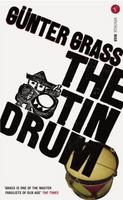Subject
Inner emigration (German: Innere Emigration, French: émigration intérieure) is a concept of an individual or social group who feels a sense of alienation from their country, its government, and its culture. This can be due to the inner emigrants' dissent from a radical political or cultural change, or due to their belief in an ideology that they see as more important than loyalty to their nation or country. The concept also applies to political dissidents who live under a police state, but who secretly violate the accompanying censorship of literature, music, and the arts. This concept is a regular theme in dystopian novels. The similar term internal émigré was used in the Soviet Union as an insult towards Soviet dissidents, by suggesting that they had the same opinions as anti-communist refugees in the West. In a private letter to the vocally rebellious fellow poet Titsian Tabidze, future Soviet dissident Boris Pasternak urged his friend to ignore the attacks against their poetry in the press: "Rely only on yourself. Dig more deeply with your drill without fear or favor, but inside yourself, inside yourself. If you do not find the people, the earth and the heaven there, then give up your search, for then there is nowhere else to search." The most controversial use of this concept refers to Germans who agreed with the writers of Anti-Nazi Exilliteratur from the German diaspora, but who chose to continue living in Nazi Germany while outwardly appearing to conform. The term inner emigration was most famously used by novelist Frank Thiess in response to Thomas Mann's BBC broadcast alleging German collective guilt for Nazi war crimes and The Holocaust. Thiess replied that Mann had spent the Nazi years in the relative freedom and safety of Switzerland and the United States and had not experienced the police state tactics used by the Nazi Party and the Gestapo. Mann therefore had no right, according to Thiess, to pass judgment upon the compromises made by those who had. Thiess further argued that many German people who had outwardly appeared to conform had proven far more heroic than political refugees like Mann, who now passed judgment on them after spending the Nazi years in other, freer countries. Source: Wikipedia (en)
Works about inner emigration 1
Subject - wd:Q896323
